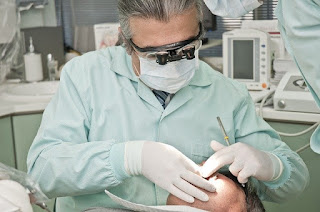The prescription opioid crisis in America began in emergency rooms and the offices of primary care physicians. We have all read unbelievable stories of rampant overprescribing; enough pills are doled out each year to give every person more than 100 prescription narcotics.
In some places, particularly in rural environments, pharmacies filled prescriptions for millions of opioid pills, even though the town population could be less than 500 people. You have probably heard about rural doctors and pharmacies’ contribution to the opioid epidemic in America.
Naturally, legislation and crackdowns by government agencies have curbed some of the heinous overprescribing. However, we are far from solving the problem completely. Far too many prescriptions are being written for opioids, even when a nonnarcotic would suffice.
While physicians and pharmacies have played the primary role in creating this public health crisis, they are not the only contributors. Dentists have the power to prescribe habit-forming narcotics too, and there is evidence that many opt for opioids even though ibuprofen would do the job of reducing patient pain.
The official position of the American Dental Association (ADA) is that a combination of ibuprofen and acetaminophen can be just as effective as an opioid. The organization recommends that dentists consider non-opioids for acute pain management first.
Prescribing Opioids to Dental Patients
If you have had a toothache, then you know how painful it can be. The same is true for those who have undergone dental surgeries. The mouth is laden with nerves that can send shock waves of discomfort if one has poor dental hygiene. Still, dentists who resort to opioids first are putting their patients at significant risk.
Researchers for the Centers for Disease Control and Prevention (CDC) found that about 40 percent of patients who visited the emergency department for dental-related problems filled a prescription for opioid painkillers (such as OxyContin) between 2012 to 2014, HealthDay reports. In addition to opioids, more than 50 percent of patients presenting for similar dental concerns in the ER received antibiotics for toothaches. More than 30 percent of patients fill prescriptions for both types of medication.
“Given previous findings that dental-related diagnoses are a common and potentially avoidable reason for [emergency department] visits, the prescribing of antibiotics and opioids for these conditions becomes even more concerning,” the study authors wrote in the report published in the March issue of the Journal of the American Dental Association.
The ADA reports they are making efforts to raise awareness about the opioid abuse crisis in the United States, according to the article. Dentists can play an essential role in curbing the opioid epidemic.
Men and women in recovery who have a toothache and need dental assistance must be upfront with their dentists about their history of alcohol or substance misuse. If your dentist offers up a prescription for opioids, then please ask them to try ibuprofen or acetaminophen first.
If opioids are necessary, please take steps to ensure somebody in recovery is aware of your prescription. Many relapses in recovery have started with a toothache.
Opioid Use Disorder Treatment in California
At Hope By The Sea, we provide a full continuum of care for men and women in need of assistance for alcohol or substance use disorders. Our dedicated team of professionals utilizes the latest evidence-based approaches and therapies to help clients achieve lasting addiction recovery.
Please contact us today to learn more about our programs and services. Hope Starts Here!


